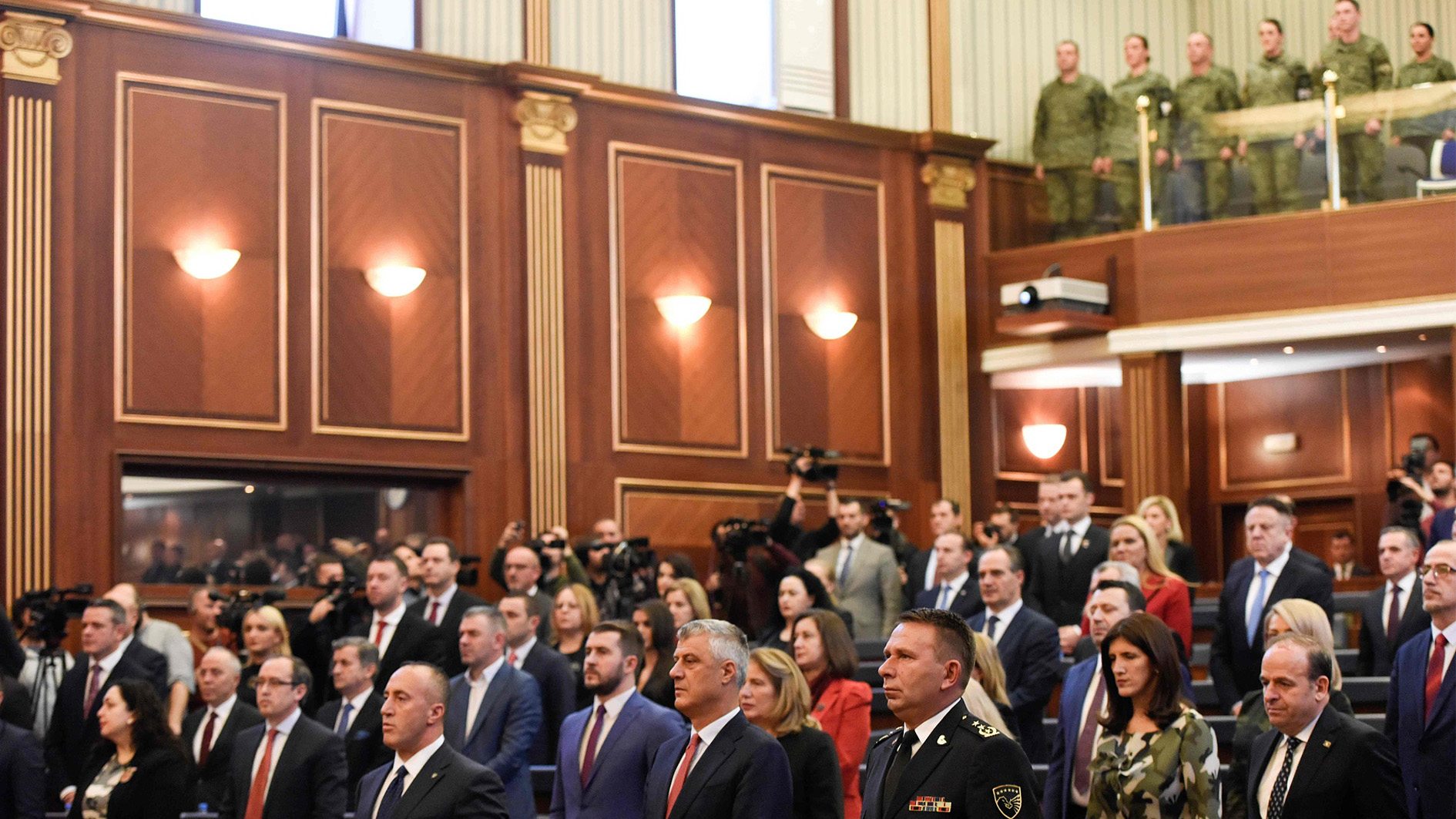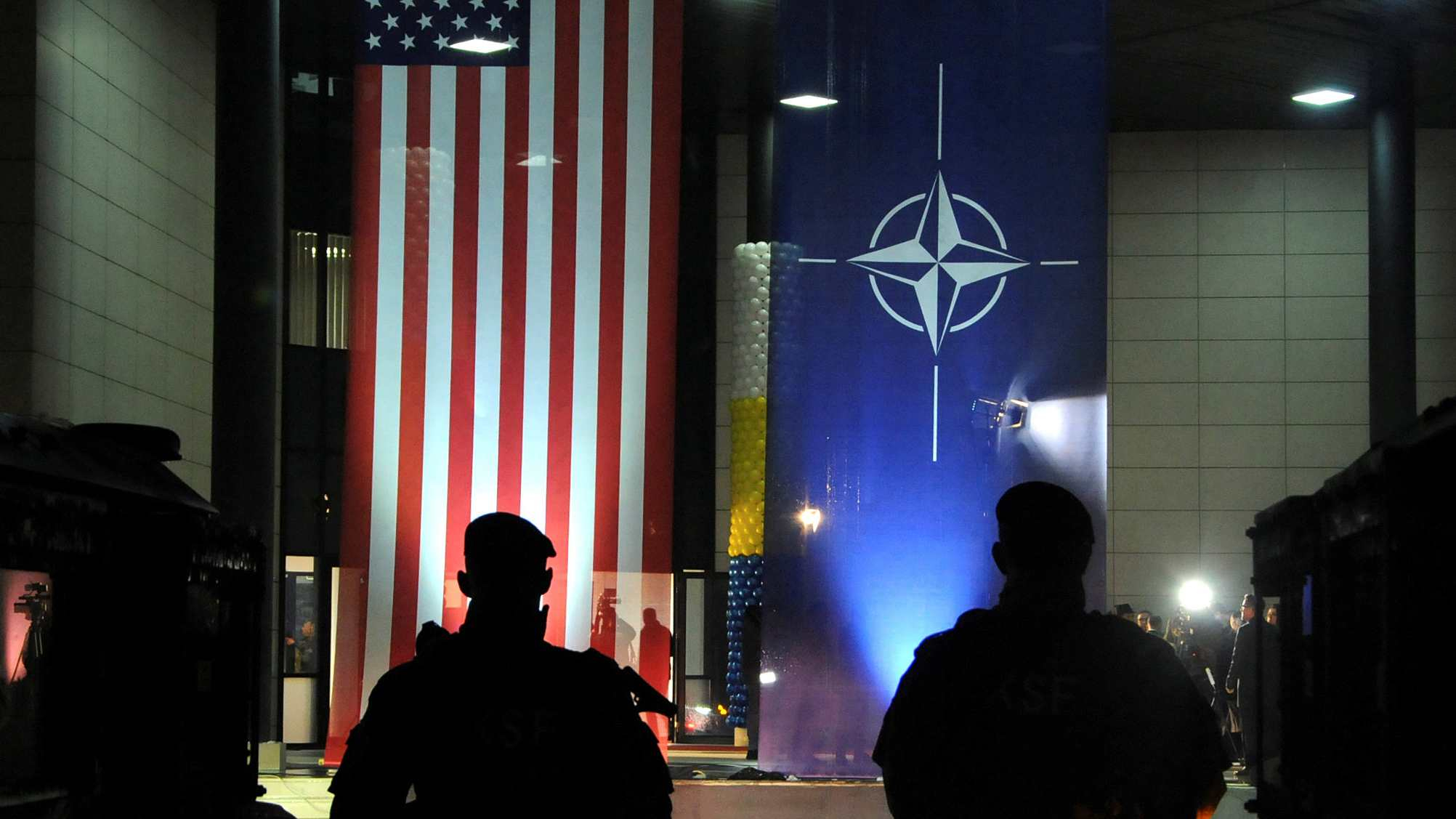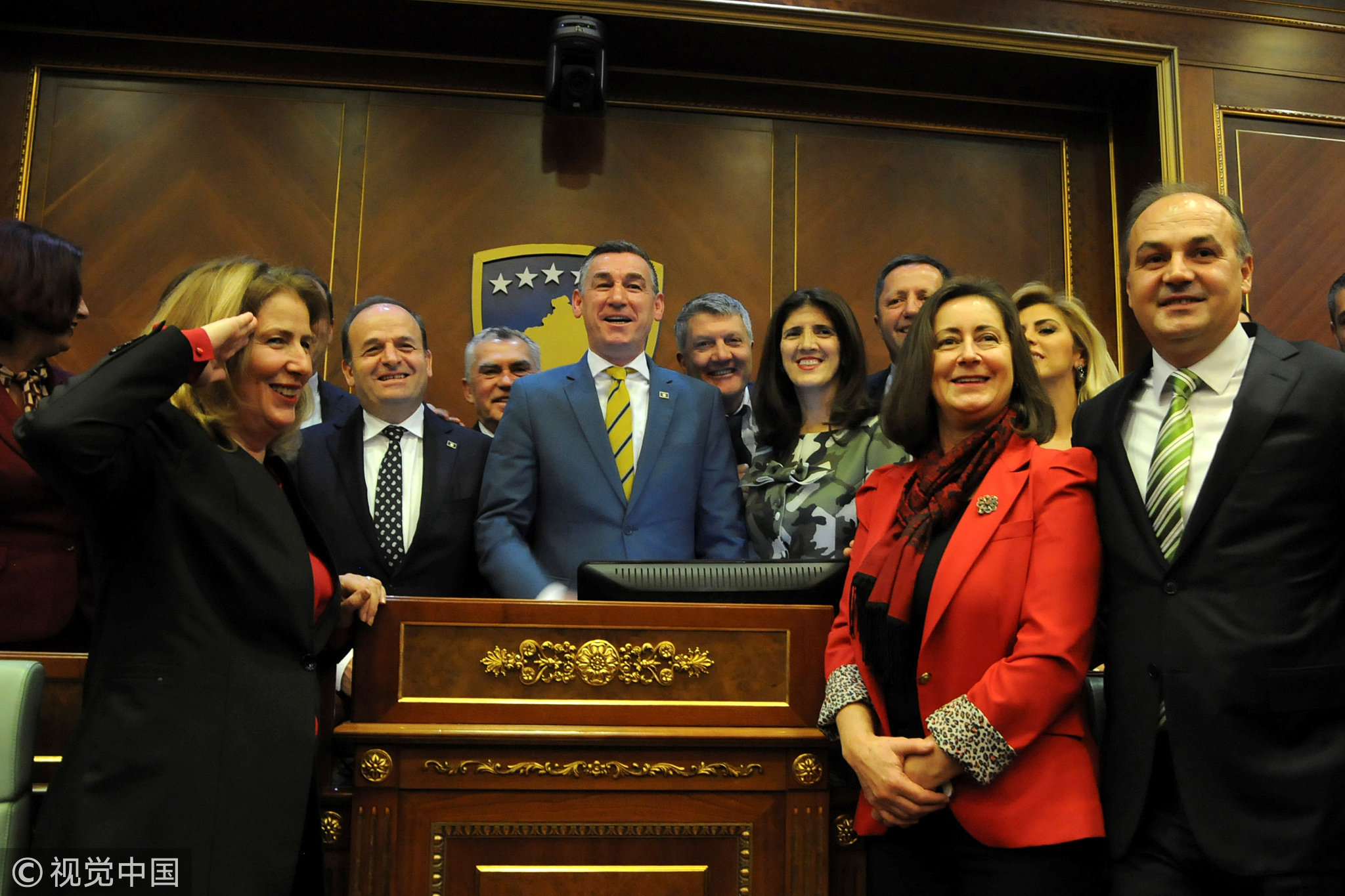
Politics
09:14, 15-Dec-2018
Kosovo's decision to form army breaks int'l law, threatens peace: Serbian gov't
Updated
08:46, 18-Dec-2018
CGTN
00:41

The Serbian government most severely condemned on Friday the decision by the parliament of what it considers its southern province of Kosovo and Metohija to establish the so-called "Kosovo army," reads a press release, assuring that Belgrade will strive to maintain peace.
Kosovo unilaterally declared independence from Serbia in 2008. Serbia rejects it and considers Kosovo its own province.
At Friday's session, the government in Belgrade opposed the transformation of the Kosovo Security Force (KSF) into an army, arguing that the decision by the authorities in Kosovo and Metohija that unilaterally seceded in 2008 leads in that direction, is of "great concern and represents a gross violation of the principles of international law, and above all of UN Resolution 1244."
Earlier Friday, Kosovo's parliament unanimously adopted the Law on Security Forces, the Law on Service in Security Forces and Law on the Ministry of Defense and voted to create a 5,000-strong standing army, which Serbia sees as a final step towards the transformation of its existing Kosovo Security Force (KSF) into a professional army.
The Serbian government recalled in the release that the decision is contrary even to Kosovo's constitution, which was drafted and adopted by the authorities in Kosovo's capital Pristina in 1999 and which Belgrade does not recognize.
"It is an absurdity and proof that Pristina, apart from international agreements, does not respect even its own norms," the Serbian government said.

Soldiers of Kosovo Security Force stand in front of the U.S. and NATO flags after the army formation ceremony in Pristina, Kosovo, December 14, 2018. /VCG Photo
Soldiers of Kosovo Security Force stand in front of the U.S. and NATO flags after the army formation ceremony in Pristina, Kosovo, December 14, 2018. /VCG Photo
"The Serbian government will continue to appeal to all international stakeholders and point towards the fact that Pristina ignores the principles of international law, which was apparent immediately after the signing of the Brussels Agreement in 2013, because Pristina did absolutely nothing to implement it since then," the release reads, referring to the dialogue mediated by the European Union that aims at normalizing relations between Serbia and Kosovo.
Belgrade also recalled the recent decision by Kosovo to introduce import tariffs, first of 10 percent and then 100 percent, on products from Serbia as well as Bosnia and Herzegovina, which "directly and unambiguously violated both the Central European Free Trade Agreement (CEFTA) and the Stabilization and Association Agreement with the European Union."
"The act of transformation of KSF into the so-called 'Kosovo army' is only the latest among drastic indicators of the extent to which Pristina's unilateral moves are in opposition to the basic values of democratic societies," the release reads, adding that this is also "the biggest threat by Pristina to regional peace so far."
The release concludes that the Serbian government and President Aleksandar Vucic will continue to monitor the situation in Kosovo and that "Serbia remains firmly committed to peace and stability throughout the region, and all its activities will be directed towards their preservation."

Kosovo's parliament speaker Kadri Veseli (C) and lawmakers smile after parliament approved formation of national Kosovo army in Pristina, Kosovo, December 14, 2018. /VCG Photo
Kosovo's parliament speaker Kadri Veseli (C) and lawmakers smile after parliament approved formation of national Kosovo army in Pristina, Kosovo, December 14, 2018. /VCG Photo
Serbian Foreign Minister Ivica Dacic told Tanjug news agency that his country will seek an urgent session of the United Nations Security Council because of the "most direct threat to peace and stability in the region and the security of the Serbian population in Kosovo and Metohija."
Vucic, who is also the commander-in-chief of the Serbian Armed Forces, started a 72-hour visit to units of the Serbian Army located in the Ground Security Zone along Serbia's border with Kosovo, as well as to the south Serbia region.
(Cover: Kosovo's President Hashim Thaci attends a ceremony of security forces a day before parliament's vote on whether to form a national army, in Pristina, Kosovo, December 13, 2018. /Reuters Photo)
Source(s): Xinhua News Agency

SITEMAP
Copyright © 2018 CGTN. Beijing ICP prepared NO.16065310-3
Copyright © 2018 CGTN. Beijing ICP prepared NO.16065310-3